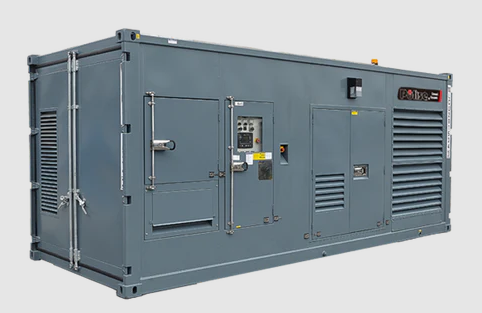In the world of backup power solutions, diesel generators are a reliable and powerful choice for residential and commercial needs. Whether you're preparing for an emergency or looking for reliable power for a remote location, choosing the right diesel generator requires careful consideration of a variety of factors. The following guide is designed to help you make an informed decision.
Power Requirements
The first step in choosing a diesel generator is assessing your power requirements. Determine the essential appliances, equipment, or systems that need backup power during an outage. Calculate the total wattage needed to run these devices simultaneously to determine the generator's size. Oversizing or undersizing can lead to inefficiencies or inadequate backup during critical moments.
Generator Type and Application
Diesel generators come in various types and are designed for different applications. Standby generators are ideal for homes or businesses requiring automatic backup power during outages. Prime power generators are suited for continuous operation in off-grid locations or as a primary power source in remote areas. Understanding your intended use will guide you in selecting the right type of diesel generator.
Fuel Efficiency and Tank Capacity
Fuel efficiency is a crucial consideration, especially for generators intended for long-duration use. Diesel generators are generally more fuel-efficient than their gasoline counterparts and can run for extended periods without frequent refueling. Consider the generator's tank capacity relative to its runtime at a specified load to gauge fuel efficiency accurately.
Noise Levels
Noise emissions can be a concern, particularly in residential areas or quiet environments. Modern diesel generators are designed with noise reduction features such as soundproof enclosures and mufflers. Check the decibel ratings of prospective generators to ensure they comply with local regulations and meet your noise tolerance levels.
Voltage Requirements and Outputs
Ensure that the diesel generator's voltage output matches your electrical system requirements. Whether you need single-phase or three-phase power, verify that the generator can deliver the necessary voltage and frequency to power your equipment safely and efficiently.
Transfer Switch Compatibility
For automatic standby generators, compatibility with a transfer switch is essential. The transfer switch detects utility power outages and seamlessly switches the electrical load to the generator. Ensure that the generator and transfer switch are compatible in terms of voltage, amperage, and communication protocols for seamless operation.
Maintenance and Serviceability
Regular maintenance is key to ensuring the reliability and longevity of your diesel generator. Consider models with accessible service points, user-friendly control panels for diagnostics, and availability of spare parts and service support from reputable dealers or manufacturers.
Environmental Impact
While diesel generators offer robust power solutions, they also emit exhaust gases. Consider models equipped with emission control technologies such as catalytic converters or diesel particulate filters (DPF) to minimize environmental impact. Compliance with emission regulations is crucial, especially in environmentally sensitive areas.
Budget and Long-Term Costs
Factor in the initial purchase cost, installation expenses, and ongoing operational costs such as fuel, maintenance, and potential repairs. While budget considerations are important, prioritize quality, reliability, and fuel efficiency to avoid costly downtime or inefficiencies in the long run.
Brand Reputation and Warranty
Choose diesel generators from reputable brands known for quality, reliability, and excellent customer support. Evaluate warranty coverage for major components and inquire about extended warranty options for added peace of mind.
Conclusion
Choosing the right diesel generator involves a comprehensive assessment of power requirements, generator type, fuel efficiency, noise levels, voltage outputs, transfer switch compatibility, maintenance needs, environmental considerations, budget, and brand reputation.
By considering these factors holistically, you can select a diesel generator that meets your specific needs and provides reliable backup power when it matters most. If you have any questions about our products, please feel free to contact us.
